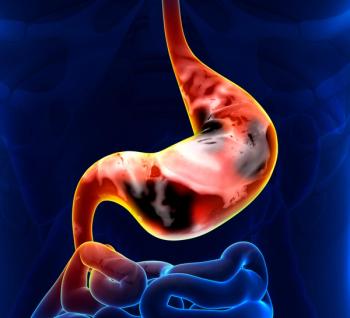
Understanding the Genomic Landscape of Colorectal Tumors
We spoke with Dr. Luis Diaz about his recent presentation on immunotherapy in colorectal cancer at the 2017 American Society of Clinical Oncology (ASCO) Gastrointestinal Cancers Symposium, held January 19–21 in San Francisco.
Today, in light of the ASCO Gastrointestinal Cancers Symposium being held January 19th to the 21st, we are speaking with Luis Diaz, an oncologist who specializes in colorectal cancer at the Memorial Sloan Kettering Cancer Center in New York City and whose lab is developing genomic-based diagnostic and therapeutic approaches for various tumor types. At the symposium, Dr. Diaz spoke about immunotherapy approaches to colorectal cancer.
-Interviewed by Anna Azvolinsky, PhD
OncoTherapy Network: There are several tumor types that are now established as being immunogenic, that is amenable to responding to immunotherapy while other tumor types are less responsive. Where does colorectal cancer fit in on that spectrum?
Dr. Diaz: You know, that is a great question. I think, as little as 2 or 3 years ago, we would have called colon cancer a minimally immunogenic tumor. However, as we learn more and more about the different subtypes of colon cancer, there does appear to be certain subtypes that are highly immunogenic and other subtypes that might be borderline immunogenic that can be converted to immunogenic tumors. So, this is a big change in our understanding of colorectal cancers and it appears that we have new therapies that may actually have a significant benefit in these subpopulations that are highly immunogenic.
OncoTherapy Network: What are the subtypes that are more amenable to immunotherapy and what are those therapies?
Dr. Diaz: It appears that the subtype that is highly immunogenic are those that have a genotype called mismatch repair deficiency. And these are tumors that have defects in the machinery that repairs DNA and as a result, they accumulate thousands of mutations. That accumulation results in some of these mutations being immunogenic and the antitumor response can be unleashed with a therapy called a checkpoint inhibitor and in the case that we studied it was an anti-PD-1 [antibody]. There have also been studies that suggested that in tumors that were not readily responsive to anti-PD-1 [therapy] that did not have mismatch repair deficiency, therefore had a much lower mutational burden and were less immunogenic, could be converted to be immunogenic with the addition of a MEK inhibitor in combination with an anti-PD-1 [antibody]. Now, that is much earlier in development, but it is certainly very exciting.
OncoTherapy Network: Can you talk about that mechanism? Is that something that your lab has done and I am sure that there is preclinical work on this?
Dr. Diaz: There have been some data in the melanoma field showing that MEK inhibition plus an anti-PD-1 results in more tumor responses and investigators at Genentech had proposed a possible mechanism and they went ahead and started that study and showed that tumors that were typically not responsive became responsive to immunotherapy, at a low level, 20% of tumors had a response, when you combine a MEK inhibitor with an anti-PD-1 [antibody]. The proposed mechanism of action is that there is a potential increase in antigen presentation because of an increased expression of MHC class I molecules.
OncoTherapy Network: Can you highlight some of the important clinical trials that are ongoing, either early or late stage, based on this knowledge?
Dr. Diaz: There is actually a phase III study that combines an anti-PD-1 with a MEK inhibitor in patients who are treatment refractory, without mismatch repair deficiency, that is ongoing and those results, I hope, will be coming out soon. And right now, we are proceeding with multiple different studies in the highly immunogenic subgroup of colon cancer called mismatch repair deficiency and we have studied mismatch repair deficiency not only in colon cancer but in a variety of different tumor types and it appears that in the third-line setting for colon cancer, that approval may be granted this year. Even more significantly, the NCCN [National Comprehensive Cancer Network] guidelines also recognized anti-PD-1 therapy in this subset of tumors. In first line for colon cancer, there is a study that is currently ongoing that is also something we are looking forward to the results in the next year or 2.
OncoTherapy Network: Just lastly, what are the important outstanding questions still about immunotherapy for colorectal cancer? I’m sure there are many, but could you highlight just a few?
Dr. Diaz: I think in the mismatch repair-deficient tumors, the questions are the follow. We have many patients with extraordinarily good responses and these responses appear to be durable and many patients have reached the 2 year mark. So do we stop the drug? How long do we stop the drug for? Is this response going to stay even without the presence of the anti-PD-1 [antibody]? I think those are questions that we won’t know the answer to until we get much further along in these clinical trials, but we have patients 3 years out who are off drug and with no evidence of recurrence of disease. And mind you, these are patients who had failed all standard lines of therapy.
OncoTherapy Network: Thank you so much for joining us today, Dr. Diaz.
Dr. Diaz: My pleasure.
Newsletter
Stay up to date on recent advances in the multidisciplinary approach to cancer.




































